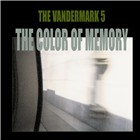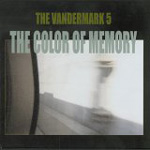Home » Jazz Articles » Profile » Ken Vandermark
Ken Vandermark
Musicians [here] are not likely to see each other as a competitor, but maybe more as a collaborator.
The above statement speaks to two opposing facets of Vandermark's career: a continuing effort to develop his music and make it self sustaining versus dealing with some of the resentment his 'success' has engendered from other players. "I was really, really willing—and still am very willing—to listen to people who have more experience working on this than I do in terms of this so-called business and promotional stuff, he says. "I found that there are a lot of people who can do things better than me if I just listen to them. It helps. So it's been a process of working on that for two decades. It's all been motivated by the fact that I really, really love to play the concerts and want to play as often as I can, A) because I enjoy it—actually, that's the main thing, is that I just love doing it and B) It's necessary to developing the music I want to play. But this kind of honest enthusiasm has been misapprehended by some as a result of what Vandermark hopes will not become his defining characteristic—the winning of the MacArthur "Genius Prize and the financial and creative flexibility it has afforded him. " You don't apply for the MacArthur, he states unequivocally. "I was fortunate enough to be selected for that and I wasn't aware of the fact that I was even in the running for it... there were some people in the media who suggested I got the prize because the MacArthur Foundation is in Chicago and it was some kind of manipulation of the process, which is unbelievably insulting. ... That money is gone now; it's been spent primarily on the music and I will continue to work as I've done before.
Continuing to work as he's done before means continuing to learn how to "have the work sustain itself through concert attendance or record sales or whatever it is that's connected directly to the music... how to get the music to succeed economically on its own terms. Early experience began with hanging posters in clubs. He then discovered, in a pre-Internet world, the power of mailing lists. Now that he is more established, he can concentrate on the traditional currency of the jazz musician: making recordings and getting people to come to performances as he feels that "the music itself explains itself when it's seen live. The problem is getting people into the room.
"The albums are primarily a way of documenting the work and if I think the work is really worthwhile and merits having an example for people to hear that weren't able to be exposed to it in a live context, then it makes sense to have that stuff happen, Vandermark believes. "Because also you have the issue of history and in the case of the earlier years in Chicago with the Vandermark Quartet, we were lucky enough to have someone interested in putting out these records, which is surprising, but they were interested and that enabled people to hear what we were doing outside of Chicago for the first time. And those records were important because it enabled people to be exposed to what was happening here that aren't from here.
 Touring is a large part of Vandermark's activities, who says that he spends seven months of the year away from Chicago, on a couple of US tours but primarily in Europe: "The reality of trying to tour in North America for me is...it doesn't matter if the group is the Vandermark 5 and then the Free Music Ensemble and then the Peter Brötzmann Tentet, a number of them connect them as being associated with me and then somehow 'well, we can't program it anymore' because the media won't cover it because they've already covered something else I've done. Vandermark is also interested in moving outside established methods such as different ways to tour, communicate and collaborate, as he sees his activities as part of larger field of endeavor than what is generally considered to be 'jazz.'
Touring is a large part of Vandermark's activities, who says that he spends seven months of the year away from Chicago, on a couple of US tours but primarily in Europe: "The reality of trying to tour in North America for me is...it doesn't matter if the group is the Vandermark 5 and then the Free Music Ensemble and then the Peter Brötzmann Tentet, a number of them connect them as being associated with me and then somehow 'well, we can't program it anymore' because the media won't cover it because they've already covered something else I've done. Vandermark is also interested in moving outside established methods such as different ways to tour, communicate and collaborate, as he sees his activities as part of larger field of endeavor than what is generally considered to be 'jazz.' It is this pragmatic attitude that Vandermark has come to realize is crucial to be successful, even if others don't. "I definitely see the business side of things being motivated by the music, he says. "And I think that there are people who have criticized me and have felt I have been ambitious and motivated to be successful in this way. ...I think they've misunderstood from my standpoint the motivation and the way that I've tried to work.
The way that Vandermark works—whether it be leading the Vandermark 5 and Free Music Ensemble, being part of collective groups like Sonore and DKV, participating in an international large electro- acoustical ensemble like Territory Band or as a 'sideman'—is consistent conceptually, even if the result can seem very far ranging. "There is some kind of thread to the different things I'm doing, he explains. "Many times, people see, o.k., there's this range of projects and I'll be asked 'how can you do that?' or be questioned like, 'how can [he] be serious about all these different things, they're too disparate.'.. I think that from my standpoint the things are connected because all the work is one general sweep in a somewhat similar direction in finding something new to say and needing - a personal need—to try and explore the things that are going to inform that path.
Recommended Listening:
· Steelwool Trio—International Front (Okkadisk, 1994)
· AALY Trio/Ken Vandermark—Hidden in the Stomach (Silkheart, 1998)
· Ken Vandermark's Joe Harriott Project - Straight Lines (Atavistic, 1999)
· Vandermark 5—Elements of Style/Exercises in Surprise (Atavistic, 2005)
· Vandermark 5—Alchemia (Not Two, 2005)
· Free Music Ensemble—Cuts (Okkadisk, 2005)
Related Article
Ken Vandermark: That Was Now
Photo Credit
Juan-Carlos Hernandez
 | Free Download Suitcase The Vandermark 5 From The Color of Memory 7:49 |
< Previous
Earthworks Underground Orchestra
Next >
The Man Behind the Trumpet
Comments
About Ken Vandermark
Instrument: Saxophone
Related Articles | Concerts | Albums | Photos | Similar ToTags
For the Love of Jazz
 All About Jazz has been a pillar of jazz since 1995, championing it as an art form and, more importantly, supporting the musicians who create it. Our enduring commitment has made "AAJ" one of the most culturally important websites of its kind, read by hundreds of thousands of fans, musicians and industry figures every month.
All About Jazz has been a pillar of jazz since 1995, championing it as an art form and, more importantly, supporting the musicians who create it. Our enduring commitment has made "AAJ" one of the most culturally important websites of its kind, read by hundreds of thousands of fans, musicians and industry figures every month.
























